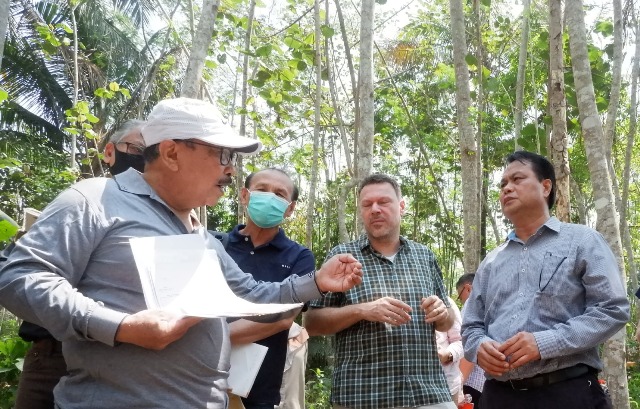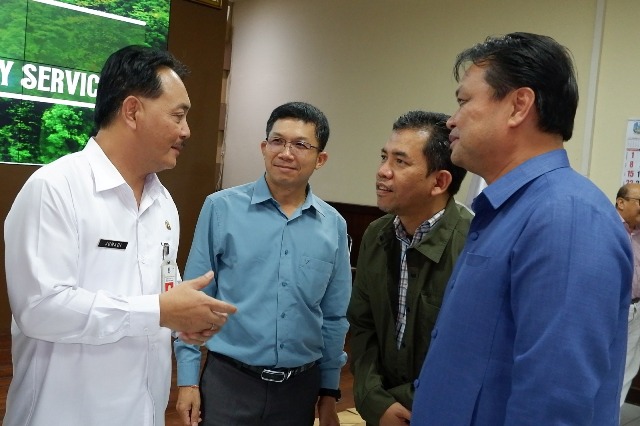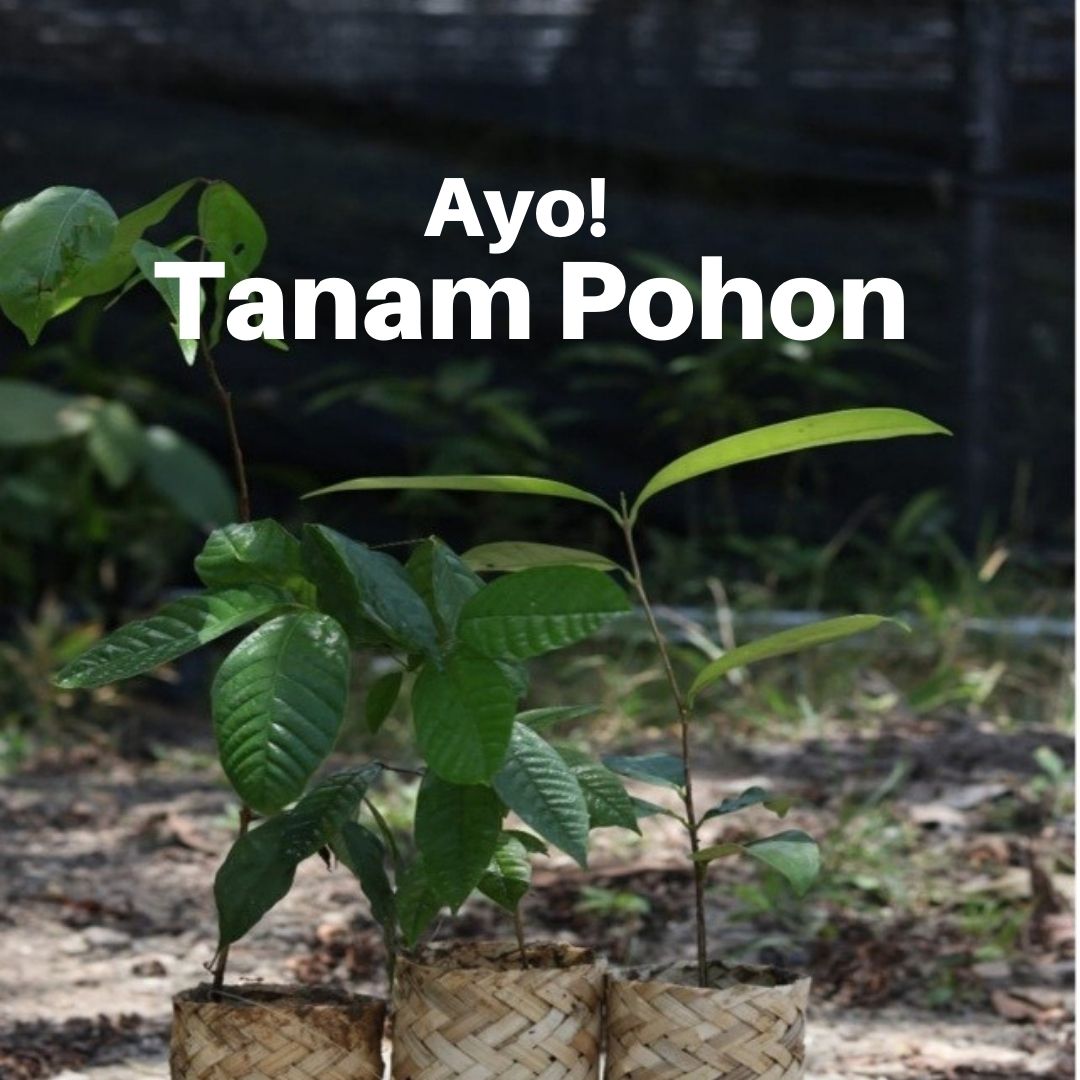A delegation of forestry experts from Lao visited around Malang and Surabaya, in East Java Province to witness how the Indonesian Legality and Sustainability Verification System (SVLK) was implemented as a lesson for improving their own Timber Legality Assurance System (Lao TLAS).
Director General of the Department of Forest Inspection, Ministry of Agriculture and Forestry, Laos, Khampone Mounlamai, who led the delegation, said the delegation’s visit to the field was to see how the implementation of Indonesia’s SVLK is useful as a lesson for Laos.
“We visited private forests managed by farmers who implement a very good system in applying SVLK. Starting from logging until finally the wood is transferred to the factory,” he said, Friday 27 October 2023.
“We also visited the factory to see the processing of wood from raw materials to final products for domestic and international markets,” he added.
Before the field visit to East Java Province, the Lao Delegation visited the Ministry of Environment and Forestry in Jakarta. The delegation also met with forestry business associations, the Conformity Assessment Bodies (CAB) Forum, and Civil Society Organiations (CSOs) that are part of the independent monitors.
Indonesia’s SVLK is mandatory and operates based on government regulations. In its implementation, several parties have a role. First, the National Accreditation Committee (KAN) to accredit CABs. Second, CABs to audit forestry business units and forest products, including wood. Some CABs also act as the licensing authority to issue V-Legal documents or FLEGT Licenses for legal wood products to be exported. Then there are the CSOs who act as independent monitors of all actors involved. At each stage, there is check and balance of the mechanism, increasing its credibility.
One thing that attracted the attention of the Lao delegation was the use of Supplier’s Declaration of Conformity (SDOC) so that low risk planted timber produced by farmers or other micro-scale forestry business units could be included in Indonesia’s SVLK and have full market access, thus supporting their livelihood and welfare.
SDOC in SVLK refers to the international standard ISO/IEC 17050. Industries that purchase wood with SDOC documents are required to carry out due diligence and are audited by the CABs.
The Laotian delegation’s visit to Indonesia was facilitated by the European Forest Institute (EFI), the German Agency for International Cooperation (GIZ) and the German Development Bank (KfW). Members of the delegation included the Ministry of Agriculture and Forestry, Ministry of Industry and Commerce, provincial governments, and business actors.

President of Lao Furniture Association Thongdam Syhamaya said this visit was very beneficial for the continuation of the furniture industry in Laos. “This is a very good opportunity to visit Indonesia so that we can share information for the improvement of the timber legality assurance system in Laos,” he said.
Syhamaya sees that Indonesia’s SVLK implementation is very strong with many stages and checks and balances, and that it is very well structured. He also noted that multi-stakeholder involvement strengthens Indonesia’s SVLK.
Syhamaya stated that the Laotian government is committed to ensuring that all wood used comes from legal sources based on regulations that have been made by the government.
He continued that the Lao government is encouraging the growth of domestic processing industries by prohibiting the export of raw materials. “100 percent of raw materials must be processed domestically, prior to export” said Syhamaya. He noted that the same rule applies in Indonesia.
- Indonesia’s Environment Ministry Launches SiPPEG to Strengthen Sustainable Peat Management
- APHI Collaborates with Fairventure Social Forestry to Develop Social Forestry-based Plantation Forest
Meanwhile, Head of the East Java Provincial Forestry Service, Jumadi, emphasized that his party is fully committed to implementing SVLK so that forests are managed sustainably and are benefiting the local economy.
Jumadi also stated that he facilitates micro-scale forestry businesses so that they can comply with SVLK provisions. “We carry out outreach, assistance and facilitation of SVLK certification to private forest farmer groups, as well as small and medium industries,” he said.
Until 2023, there are 422 wood processing industrial units and 90 community forest farmer groups including 85,400 farmers who have SVLK certificates. ***




